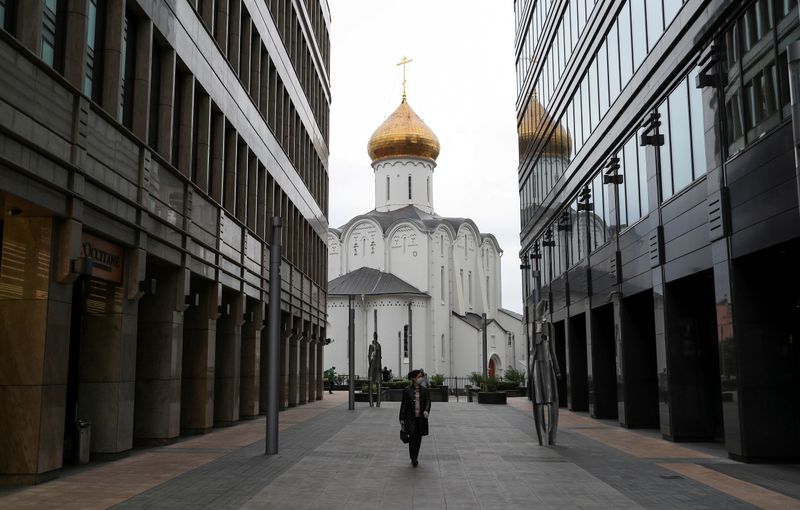By Andrey Ostroukh
MOSCOW (Reuters) - The World Bank expects Russia's economy to start recovering in 2021, at a pace that may depend on the impact of a COVID-19 vaccine, but has said "the worst may still lie ahead" for Russian banks.
Russia's commodity-dependent economy has been hit this year by a plunge in prices for oil, its main export, and by the impact of the new coronavirus, with lockdowns slowing business activity.
The World Bank said in a regular report released on Wednesday that Russia's gross domestic product will shrink by 4% in 2020 after profits of large and medium-sized firms dropped by about 40% percent year on year in the first nine months.
In 2021, Russia's GDP will grow by 2.6% under the base-case scenario, according to the report, suggesting Russian authorities can opt for a more gradual fiscal consolidation than currently planned.
"Rebound in consumption on the back of monetary easing and improved confidence is expected to be the main growth driver in 2021 and 2022," the World Bank said.
"Consumer and business confidence are expected to improve assuming a vaccine deemed safe and effective is rolled out."
But GDP is seen growing by only 0.6% if there is a bigger rise in new COVID-19 cases than projected under the base-case scenario, and the surge lasts into the second half of 2021, it said.
This could happen if "the meaningful rollout of an approved vaccine is delayed by about three quarters and is limited by a general reluctance to be immunized."
Russia has recorded the world's fourth-highest number of COVID-19 cases. It started vaccinations this month, with Moscow alone planning to inoculate up to 7 million people.
Russia's central bank and government have so far managed to relieve the immediate pressure on the banking sector but the weakening quality of assets in the corporate and retail segments weighs on banks' profitability, the World Bank said.
"The real extent of problem loans on bank balance sheets will start emerging by mid-2021, when the remaining regulatory forbearance measures will be lifted," it said.

"Pre-existing vulnerabilities such as a high share of non-performing loans combined with uncertainty about the length of the second wave of the pandemic and associated economic costs suggests that the worst still may lie ahead."